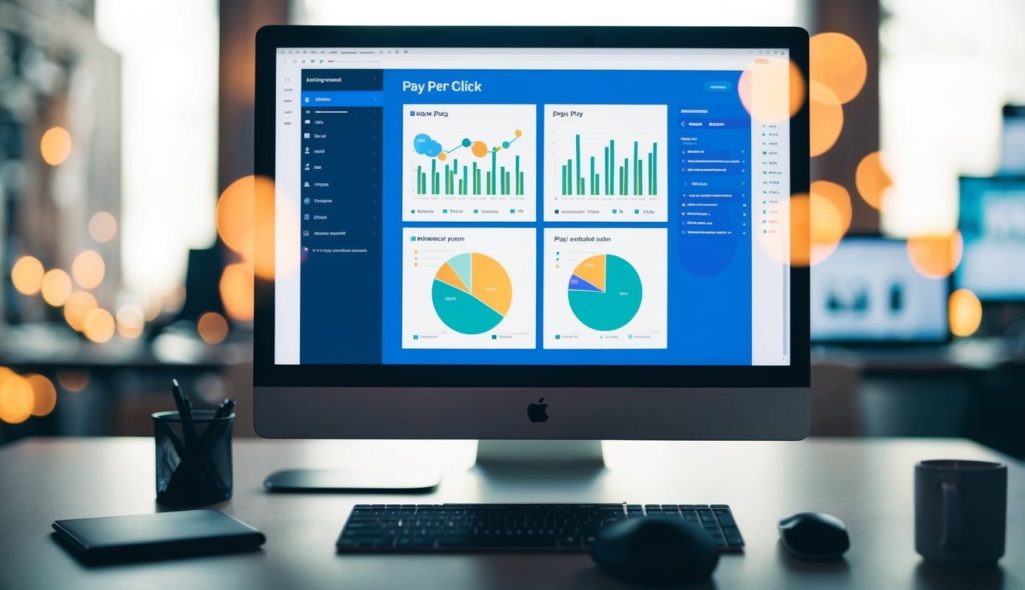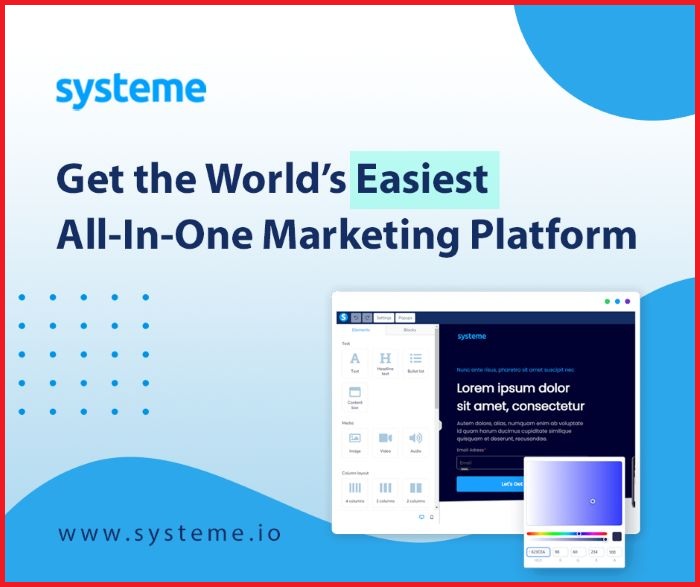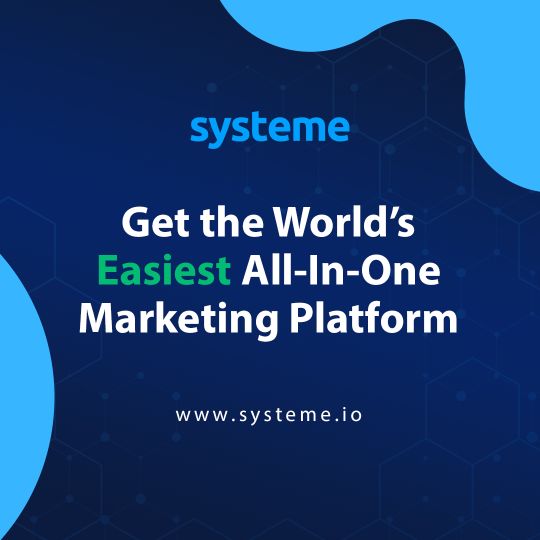A pay-per-click (PPC) specialist plays an essential role in the digital marketing landscape. They carefully manage online advertising campaigns to ensure that a company’s ads reach the right audience. This leads to better visibility and increased conversions. If you want to drive targeted traffic to your website, hiring a PPC specialist is crucial.

A PPC specialist is responsible for creating and optimizing ad campaigns that appear on search engines and other platforms. They use their skills to make sure ads are both engaging and effective in reaching intended goals. In addition, they analyze performance data to improve results, making sure that every click counts.
In the ever-evolving world of digital marketing, the expertise of a PPC specialist is in high demand. They not only manage budgets but also find cost-effective ways to improve ad performance. Understanding how PPC fits into a broader marketing strategy can greatly enhance your overall marketing efforts.
Key Takeaways
- Hiring a PPC specialist enhances your advertising effectiveness.
- PPC specialists optimize ad performance using data.
- Their skills integrate seamlessly into broader marketing strategies.
Understanding Pay-Per-Click
Pay-per-click (PPC) advertising is a key part of many digital marketing strategies. It involves running campaigns where you pay each time someone clicks on your ad, allowing for precise targeting and budgeting.
Basics of PPC
In PPC, you design ads to target keywords or placements online. When someone searches for these keywords, your ad can appear in search results.
You only pay when someone clicks on your ad, making it cost-effective. Managing bids and setting budgets are crucial in maximizing your return on investment (ROI). Tools like Google Ads and Bing Ads are popular choices for creating campaigns and tracking performance. Being effective at PPC requires ongoing analysis and adjustment.
Types of PPC Campaigns
There are several types of PPC campaigns, each serving different goals. Search ads are shown in search engine results, targeting users actively looking for information.
Display ads appear on websites to reach a broader audience. Social media PPC uses platforms like Facebook to engage users based on their interests and demographics. Each type of campaign requires a unique approach and has specific metrics for success, such as click-through rates (CTR) and conversion rates.
Pay-Per-Click Advertising Platforms
Google Ads is the leading platform for PPC marketing, offering a variety of ad formats and extensive targeting options.
Bing Ads, although smaller, reaches a unique audience and offers budget-friendly options. Other platforms include Amazon for product advertising and social networks like Facebook and LinkedIn. Each platform provides different tools for analyzing results and optimizing campaigns to meet your advertising goals. Choosing the right platform depends on your target audience and campaign objectives.
The Role of a PPC Specialist
As a PPC Specialist, you are responsible for managing and optimizing pay-per-click advertising campaigns. This involves a range of duties from strategy to analysis. Your role is crucial in digital marketing due to the specialized skills required. There are various career paths and progression opportunities, including roles like PPC Manager or freelance work.
Essential Duties
Your main duties include planning, creating, and managing PPC campaigns on platforms like Google Ads. You need to conduct keyword research to ensure ads are targeted effectively. Monitoring and adjusting bid budgets to maximize campaign performance is also key. Performance analysis helps you understand which ads convert best, allowing you to tweak campaigns to improve results. Collaboration with other marketing roles is often necessary to align strategies.
Importance in Digital Marketing
PPC specialists play a vital role by driving targeted traffic to websites. Ads created by you help increase brand visibility and conversions. This can be crucial for businesses that rely on online sales or lead generation. Your expertise in pay-per-click advertising optimizes marketing budgets, ensuring that every dollar spent generates high returns. Staying updated on industry trends and platform changes is important for maintaining effectiveness.
Career Path and Progression
Starting as a PPC Specialist can lead to various career opportunities. With experience, you can advance to roles such as PPC Manager, where you oversee teams and larger budgets. Freelance opportunities are also available, allowing remote work flexibility. Developing skills in areas like display advertising or analytics can broaden your career prospects. Continuous learning and certification in relevant digital marketing tools can help accelerate your progression.
Key PPC Skills and Competencies
Mastering the essential skills of a PPC specialist involves a mix of analytical, creative, organizational, and communication skills. Each of these competencies is crucial for crafting effective ad campaigns that reach the right audience and maximize the return on investment. Let’s explore these key areas and see how they contribute to your role as a PPC specialist.
Analytical Skills
Your ability to analyze data is critical in pay-per-click advertising. It involves examining metrics like click-through rates (CTR), conversion rates, and return on ad spend (ROAS). Understanding these numbers helps you refine strategies and optimize ad performance.
Using tools like Google Analytics and PPC platforms, you can track campaign performance. Pattern recognition in data allows you to identify trends, predict outcomes, and make informed decisions to enhance effectiveness.
Attention to detail is also vital. Small changes in data can signal larger issues or opportunities that impact your campaign’s success. By refining these analytical skills, you improve the precision and success of your PPC efforts.
Creative Skills
Creativity in PPC advertising goes beyond making appealing ad visuals. It’s also about crafting persuasive ad copy that grabs attention and motivates users to click.
Designing compelling ads involves selecting the right images, colors, and headlines. Each element should align with your brand and convey a clear message to your audience. Exploring new creative approaches can differentiate your campaigns in a crowded digital space.
Additionally, A/B testing allows you to try different creative elements to see which resonates best with your audience, driving better results. By nurturing creativity, you ensure your ads stand out and engage effectively with potential customers.
Organizational Skills
As a PPC specialist, managing multiple campaigns requires strong organizational skills. You must juggle numerous tasks simultaneously, from setting up campaigns to monitoring performance and adjusting strategies as needed.
Time management plays a crucial role in staying ahead of deadlines and ensuring all campaigns run seamlessly. Establishing clear workflows and using project management tools can help streamline processes and improve efficiency across campaigns.
Keeping detailed records and tracking all changes can help prevent errors and provide a reference for future campaigns. This level of organization allows you to maintain consistency and effectiveness in your advertising efforts.
Communication Skills
Effective communication is fundamental in PPC roles, whether collaborating with team members or conveying results to stakeholders. Clear communication ensures everyone involved understands campaign goals, strategies, and outcomes.
You need to articulate your insights and recommendations concisely and persuasively. This involves writing concise reports and engaging presentations that highlight key findings and support your decisions.
Teamwork often demands seamless cooperation between different departments, such as sales and design. By fostering open communication, you enhance collaboration, leading to more cohesive and successful campaigns.
Developing Effective Ad Campaigns
Creating a successful ad campaign involves several critical steps. These include selecting the right keywords, writing engaging ad copy, and designing effective landing pages to boost conversion rates.
Keyword Research and Selection
Effective ad campaigns start with targeted keyword research. You need to find relevant keywords that your audience searches for in your industry. Tools like Google Keyword Planner help identify high-traffic keywords. Choose a mix of broad, exact, and long-tail keywords to maximize reach and conversion.
It’s important to monitor keyword performance. This involves analyzing clicks and conversion rates. Remove underperforming keywords and add new ones to improve your campaign continuously. Use negative keywords to filter out unrelated traffic. This saves money and refines targeting.
Crafting Compelling Ad Copy
Writing ad copy is about capturing attention quickly. Be clear and concise. Focus on crafting headlines that draw readers in and include a strong call-to-action. Highlight unique selling points and benefits. This encourages users to click on your ad instead of a competitor’s.
Use emotional words that trigger responses. A/B testing helps find the most effective text. Test different versions of your copy to see what resonates best with your audience. Remember, the goal is to convert potential customers into actual buyers.
Designing Landing Pages
A landing page is the first thing users see after clicking your ad. It should be visually appealing and have a clear layout. Focus on landing page design to match the message of your ad. Consistency in look and feel reassures users they are in the right place.
Include persuasive content and clear calls-to-action. Fast loading times are key, as delays might cost you visitors. Ensure the page is mobile-friendly, considering many users browse on their phones. Use analytics to track visitor behavior and adjust design and content accordingly for improved results.
Optimizing for Performance
To achieve success in paid marketing, focus on refining strategies that improve performance metrics. Use techniques like A/B testing and conversion rate optimization to drive results. Analyze campaign data to ensure your ads operate at their peak.
A/B Testing and Ad Variations
A/B testing involves creating two or more versions of an ad to see which one performs better. You can test elements like headlines, images, and calls-to-action. This approach lets you optimize ad performance as you learn which variations resonate most with your audience.
Try running tests on different marketing channels. Gather insights on how changes impact conversion rates. Make decisions based on data to refine your campaigns and boost effectiveness.
Conversion Rate Optimization
Conversion rate optimization (CRO) focuses on increasing the percentage of users who complete desired actions, such as making a purchase. Analyzing elements like landing pages and user experience can lead to improvements in this area.
Implementing tools like heatmaps can help identify where users engage most on your site. Reduce barriers in the conversion process, like lengthy forms, to enhance user experience and improve conversion rates. Keep refining your approach to drive better results.
Analyzing Campaign Data
Analyzing campaign data is essential for understanding ad performance across different platforms. Use data analysis to track performance metrics such as click-through rates, cost-per-click, and overall ROI.
Identifying trends and patterns helps in making informed decisions about campaign management. Regularly review analytics to tweak your strategies and maximize marketing efficiency. By focusing on these insights, you can optimize current and future campaigns for success.
Strategic PPC Management
Strategic PPC management plays a crucial role in optimizing your pay-per-click campaigns. By focusing on audience targeting, competitive analysis, and ROI adjustments, you can maximize the effectiveness of your PPC efforts.
Audience Targeting and Segmentation
In PPC marketing, identifying the right audience is key. You start by examining your customer base, segmenting them into groups based on demographics, interests, and online behavior. Using tools like Google Ads, you can refine your approach, which helps to increase the relevance of your ads.
Effective segmentation allows you to craft targeted messages for each group. This not only improves engagement but also enhances your conversion rates. Furthermore, you can utilize A/B testing to find the most effective content for each segment. By analyzing data, you stay adaptable and responsive to audience preferences.
Competitive Analysis and Market Trends
Competitive analysis in PPC involves studying your competitors’ ad strategies and learning from their strengths and weaknesses. You can use tools like SEMrush to monitor competitor keywords and ad copy. This lets you uncover opportunities to differentiate your campaigns.
Being aware of market trends is crucial. Staying updated on seasonal trends or shifts in consumer behavior can inform your strategy. For instance, if your competitors are focusing on a specific keyword, you might explore related terms that are less competitive. This proactive approach helps you maintain a competitive edge and drive traffic efficiently.
Adjusting Campaigns for ROI
Adjusting your campaigns to maximize return on investment (ROI) is vital. Start by reviewing your campaign performance metrics like click-through rates and conversion rates. Analyzing these data points helps you identify underperforming areas.
By reallocating budgets towards high-performing keywords or ad groups, you enhance efficiency. Continuously adjusting bidding strategies and ad placements ensures better utilization of your budget. Additionally, integrating SEO insights enhances the synergy between paid and organic search efforts. By systematically evaluating and tweaking your campaigns, you optimize spend and boost your overall PPC success.
Integrating PPC with Other Marketing Efforts
When integrating PPC with other marketing channels, you must align your strategies for maximum impact. This integration helps in utilizing SEO, social media, and data insights to enhance your digital marketing performance.
Aligning SEO and PPC Strategies
Synchronizing SEO and PPC advertising can greatly boost your brand’s visibility. SEO focuses on long-term search ranking, while PPC offers immediate traffic through paid ads. Utilizing both allows you to cover all bases, improving both short-term and long-term performance.
SEO can inform PPC strategies and vice versa by sharing data. For instance, use high-performing SEO keywords in your PPC campaigns to target the most valuable terms. This approach maximizes your reach and helps adapt to changing SEO trends.
Utilizing Social Media Channels
Social media can amplify your PPC advertising efforts. Platforms like Facebook and Instagram allow you to target audiences based on specific interests and demographics, complementing your PPC goals.
By creating aligned messaging across your PPC and social media, you ensure consistent branding. Use social media analytics to refine your PPC campaigns, focusing on what resonates most with your audience. This integration also provides deeper insights into online marketing dynamics and consumer behavior.
Leveraging Data for Marketing Insights
Data is the bedrock of a successful marketing strategy. By integrating PPC with other marketing efforts, you can pool data from various channels to gain comprehensive insights.
Analyze the performance data from your PPC campaigns to inform broader marketing tactics. This includes understanding customer behavior, preferences, and the effectiveness of different channels. Use these insights to fine-tune your overall digital advertising strategy, ensuring you’re always a step ahead in adapting to market trends.
Advancements in PPC
Advancements in pay-per-click (PPC) advertising are transforming how you can manage campaigns, optimize ads, and use digital marketing tools. These changes are crucial for improving strategies, increasing conversions, and staying competitive.
Emerging Technologies and Tools
New technologies in PPC are reshaping how you manage and run campaigns. AI-driven PPC management software can automate bidding, keyword research, and ad placements. These tools help you make quick, data-driven decisions, improving campaign efficiency. Additionally, machine learning algorithms analyze user behavior and preferences, enabling more precise ad targeting.
You should also consider using advanced analytics tools. These provide insights into campaign performance, helping you fine-tune your ads. They enable you to track metrics like click-through rates and conversion rates in real-time, allowing timely adjustments that boost results.
Adapting to New Advertising Networks
Adapting to new advertising networks is vital for reaching wider audiences. Besides Google and Bing, emerging platforms like Amazon and TikTok offer unique advertising opportunities. Each network has distinct features and user bases that you can leverage to diversify your reach.
Understanding the nuances of each platform allows you to tailor your strategy. For instance, Amazon is ideal for product ads, while TikTok’s visual style caters to younger audiences. Being versatile across different networks helps maintain consistent engagement and visibility.
Future of PPC in Marketing
The future of PPC in marketing lies in personalization and integration. As more data becomes available, achieving personalized ad experiences will be essential. You’ll need to balance data insights with creativity to deliver relevant content that resonates with users.
Integrating PPC with other digital marketing strategies broadens your approach. By combining PPC with social media, email marketing, and SEO, you create a cohesive strategy that maximizes visibility. Teamwork among marketing professionals ensures that all channels complement each other, leading to more effective campaigns and sustained growth in conversions.
Building a Career in PPC
Starting a career as a PPC specialist involves a mix of education, hands-on experience, and decision-making about work settings. Whether you’re considering remote work options or in-house roles, understanding these aspects will help you navigate your career path effectively.
Education and Certifications
To begin your journey, focus on building a solid educational foundation. A degree in marketing, communications, or business can be beneficial. Consider pursuing specialized courses or certifications in PPC and digital marketing. Platforms like Google Ads and Bing Ads offer certifications that validate your skills and enhance your credibility.
Some marketing professionals also find value in advanced degrees. An MBA can provide broader business skills that are helpful for strategic planning and management. Stay updated with industry trends and tools through workshops and online courses, which are widely available.
Gaining Practical Experience
Having practical experience is crucial. Start by working on small PPC projects or internships to apply what you’ve learned and develop your skills. These experiences allow you to handle real-world ad campaigns, optimizing them to achieve target goals.
Many aspiring PPC specialists begin by volunteering for nonprofits or small businesses, offering their services pro bono to build a portfolio. Freelancing is another option, providing flexibility and exposure to various industries. Leverage platforms like Upwork to gain diverse experience. Aim to gather feedback and testimonials to boost your profile.
Working Remotely or In-house
As a PPC specialist, you can choose between remote work options or in-house positions. Remote work offers flexibility and can enhance work-life balance. Many companies provide positions that allow you to work from anywhere, which can be appealing if you value autonomy and independent work.
In-house roles can offer more stability, access to resources, and opportunities for team collaboration. You’ll likely engage closely with other marketing professionals, gaining insights from them. Consider what work setting best aligns with your career goals and personal needs. Trends in remote work are growing, but in-house roles also continue to offer significant advantages.
Understanding PPC Metrics
In the world of Pay-Per-Click (PPC) advertising, knowing the key metrics helps you assess the effectiveness of your campaigns. Metrics like click-through rates, cost-per-click, and conversion rates are crucial to understanding performance and making informed decisions.
Importance of Click-Through Rates
Click-through rates (CTR) measure how many people click on your ad compared to how many see it. A high CTR means you are targeting the right audience and that your ad is engaging.
To improve CTR, focus on crafting compelling ad copy and using relevant keywords. A good CTR boosts your ad’s Quality Score, leading to higher ad placements and potentially lower costs.
Monitoring CTR regularly can guide tweaks to your ad strategy. Identify which ads perform best and apply those successful elements to other parts of your campaign. Understanding CTR can lead to better ad visibility and reduce unnecessary spending.
Cost-Per-Click and Return on Ad Spend
Cost-per-click (CPC) is the amount you pay each time someone clicks your ad. Keeping this cost low is vital for maintaining a healthy advertising budget.
Lower your CPC by improving your ad’s Quality Score. A higher Quality Score—which considers relevance, CTR, and landing page experience—often results in better ad positions at a lower cost.
Return on Ad Spend (ROAS) measures the revenue generated for every dollar spent on ads. Calculating ROAS helps you determine the profitability of your campaigns. Tracking both CPC and ROAS helps you balance cost and earnings, ensuring that your advertising spend is as efficient as possible.
Conversion Rates and Their Impact
Conversion rates show the percentage of users who take a desired action after clicking your ad, such as purchasing a product or signing up for a newsletter. High conversion rates indicate effective ad targeting and persuasive landing pages.
To improve conversion rates, ensure that your landing pages match the expectations set by your ads. The page should be clear, concise, and direct visitors to the most important actions.
Analyzing conversion rates helps identify which elements of your campaigns are working and which need adjustment. Focus on optimizing not just your ads, but also the entire user journey to maximize conversions.
PPC Beyond Search Engines
Exploring PPC beyond search engines allows you to reach a wider audience across various platforms. Social media, affiliate marketing, and display networks each offer unique benefits for businesses looking to enhance their online advertising strategies.
Social Media Advertising
When you engage in paid advertising on social media platforms, you can target specific demographics and interests. Platforms like Facebook, Instagram, and LinkedIn enable you to create detailed audience profiles, maximizing the reach of your ads. Social media advertising also provides real-time performance analysis. This lets you adjust your campaigns based on insights from tools like Google Analytics.
Affiliate Marketing Opportunities
Affiliate marketing offers a chance to expand your reach through partnerships. By paying commissions to affiliates who promote your products, you gain access to their audiences. This approach requires a well-defined strategy to ensure affiliates align with your brand. Tracking tools, such as Google Analytics, are crucial. They help monitor performance and optimize campaigns for better ROI, enhancing your overall online advertising efforts.
Display Networks and Remarketing
Display networks allow ads to appear across various websites, offering substantial visibility. Google Display Network is prominent in this field, letting you show ads on related sites based on user interests. Remarketing targets users who have previously visited your site, encouraging them to return and convert. This strategy is effective for maintaining brand presence and increasing conversion rates, making it a vital part of your marketing plan.
Frequently Asked Questions
A Pay Per Click (PPC) specialist plays a key role in digital marketing by managing online advertising campaigns. Below, you will find important details regarding qualifications, job responsibilities, career paths, and salary expectations.
What qualifications are required to become a Pay Per Click (PPC) specialist?
To become a PPC specialist, you typically need a background in marketing, digital advertising, or a related field. A bachelor’s degree is often preferred. Certifications in Google Ads or other ad platforms can also enhance your credentials.
What is the typical job description for a PPC specialist?
As a PPC specialist, you manage and optimize ad campaigns to boost traffic and generate leads. Your duties include keyword research, creating ad content, monitoring performance, and adjusting strategies to improve results. You may also analyze data to guide future campaigns.
How can one transition into a career as a PPC specialist?
Transitioning into a PPC specialist role can involve gaining experience in digital marketing and pursuing relevant certifications. You might start by working in a related field or enrolling in training programs focused on pay-per-click advertising skills.
What range of salary can a PPC specialist expect to earn?
The salary for a PPC specialist can vary based on experience and location. Typically, entry-level positions may offer lower salaries, while experienced specialists with strong track records can earn substantially more. Salaries often range from $40,000 to over $70,000 annually.
What are the essential skills necessary for success in a PPC specialist role?
Key skills for a successful PPC specialist include analytical thinking, attention to detail, and proficiency with advertising platforms like Google Ads. Strong communication abilities and the capability to interpret data effectively are also important.
What does a typical career path look like for a PPC specialist?
A typical career path for a PPC specialist might start with an entry-level role. Then, you could progress to more senior positions such as PPC manager or digital marketing strategist. With further experience, you might advance to roles like digital marketing director, overseeing broader marketing efforts.





